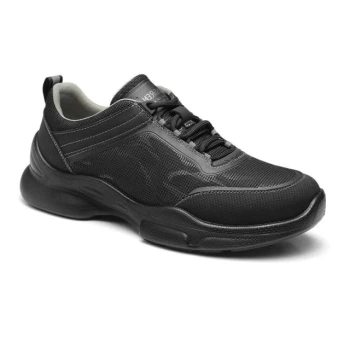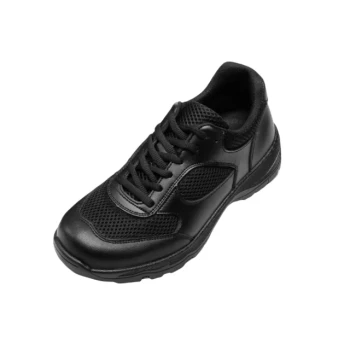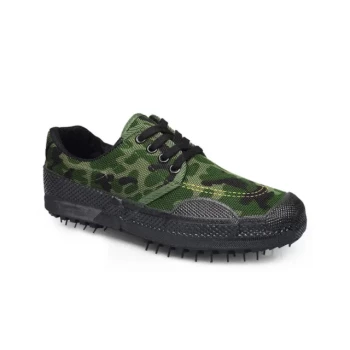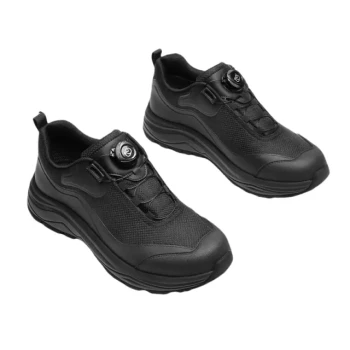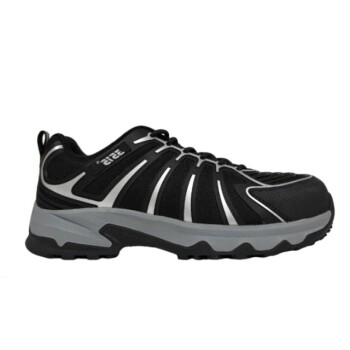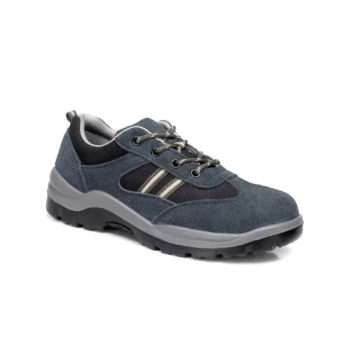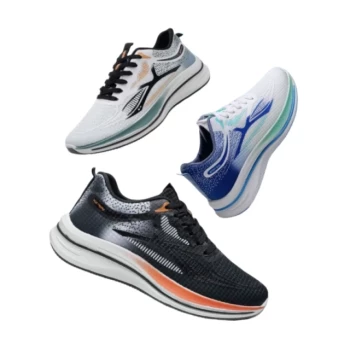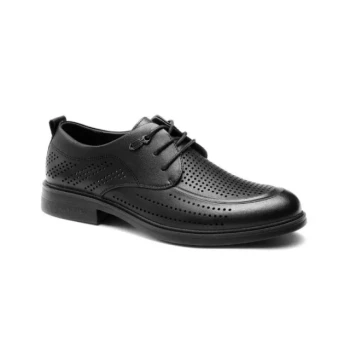The most common examples of vulcanized shoes are classic canvas sneakers and many styles of rain boots. This type of footwear is defined not by its materials but by its construction method, where heat is used to fuse a soft rubber sole directly to the shoe's upper, creating a single, bonded unit.
The core decision to choose a vulcanized shoe is a trade-off. You are selecting superior flexibility and ground-feel in exchange for less impact protection and long-term durability compared to other construction methods.
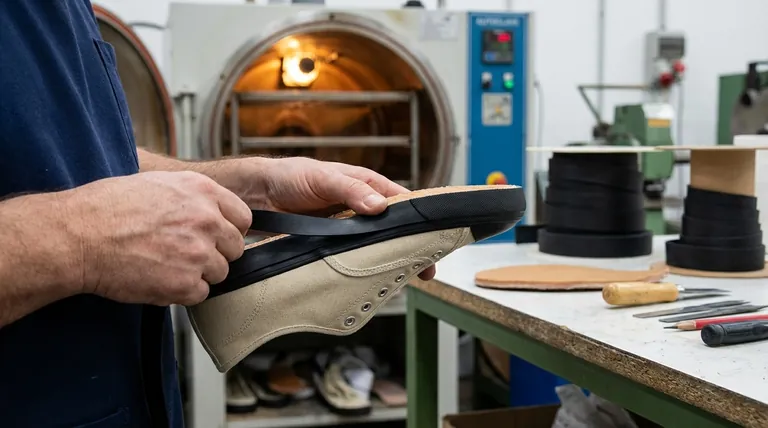
What Defines a Vulcanized Shoe?
To understand vulcanized shoes, you need to look past the style and focus on how they are assembled. The process itself gives the shoe its unique characteristics.
The Heat-Sealing Process
A vulcanized shoe is built by attaching the shoe's upper to the rubber outsole using a strip of rubber known as foxing tape. The entire assembly is then heated in a large oven, or autoclave.
This heating process, called vulcanization, causes a chemical reaction that cures the rubber. It becomes durable and permanently bonds the sole, the foxing tape, and the upper together into one integrated piece.
How to Visually Identify Them
The easiest way to spot a vulcanized shoe is by looking for that foxing tape. It appears as a distinct, flat-sided rubber strip that wraps around the entire edge of the shoe where the upper meets the sole.
This construction gives the shoe a flat, seamless profile along the bottom edge, which is very different from the chunky, stitched-on soles of many athletic sneakers.
The Primary Benefit: Unmatched Board Feel
The reason vulcanized construction remains so popular, especially in skateboarding, comes down to one key advantage: how the shoe connects you to the surface beneath your feet.
Superior Flexibility
Because the sole is a relatively thin piece of rubber directly bonded to the upper, the entire shoe is incredibly flexible right out of the box. This means there is virtually no break-in period.
Enhanced Grip and Control
The thin, flat sole provides excellent sensitivity. This allows for a much better "board feel" for skateboarders or a more connected feeling to the ground for casual wearers. This heightened sensitivity gives you unparalleled control for technical movements.
Understanding the Trade-offs
While the flexibility of vulcanized shoes is a major benefit, the simple construction method comes with clear disadvantages you must consider.
Less Foot Support
The same thin sole that provides great board feel offers very little in terms of arch support or cushioning. There is no complex midsole to absorb impact.
Reduced Durability
The single layer of foxing tape is the only thing connecting the upper and the sole. While strong, it can wear down and detach with heavy use, especially in high-wear areas. This construction typically wears out faster than a stitched cupsole.
The Cupsole Alternative
The main alternative is the cupsole. This is a pre-molded, thick rubber sole shaped like a cup, which the shoe's upper is then placed into and stitched. Cupsoles provide far more cushioning, support, and durability but are stiffer and offer less board feel.
Making the Right Choice for Your Goal
Your ideal shoe construction depends entirely on your primary activity and what you value most in your footwear.
- If your primary focus is technical performance and board feel: The flexibility and direct ground connection of a vulcanized shoe are unmatched.
- If your primary focus is impact protection and all-day support: A shoe with a cupsole construction will provide the cushioning and durability you need.
- If your primary focus is iconic style and casual comfort: The lightweight, flexible nature of vulcanized canvas shoes makes them a timeless and practical option.
Ultimately, understanding the construction of your footwear empowers you to choose the right tool for your specific needs.
Summary Table:
| Feature | Vulcanized Shoes | Cupsole Shoes (Alternative) |
|---|---|---|
| Construction | Sole heat-bonded to upper with foxing tape | Upper stitched into a pre-molded rubber cup |
| Primary Benefit | Superior flexibility and board feel/grip | Excellent impact protection and support |
| Durability | Lower (foxing tape can wear) | Higher |
| Ideal For | Skateboarding, casual wear, technical control | All-day comfort, high-impact activities |
Need high-quality vulcanized or cupsole footwear for your brand or store?
As a large-scale manufacturer, 3515 produces a comprehensive range of footwear for distributors, brand owners, and bulk clients. Our production capabilities encompass all types of shoes and boots, including the precise vulcanized construction detailed in this article. We can help you source or develop the perfect footwear to meet your customers' specific needs for performance, style, and durability.
Contact our experts today to discuss your production requirements and get a quote!
Visual Guide
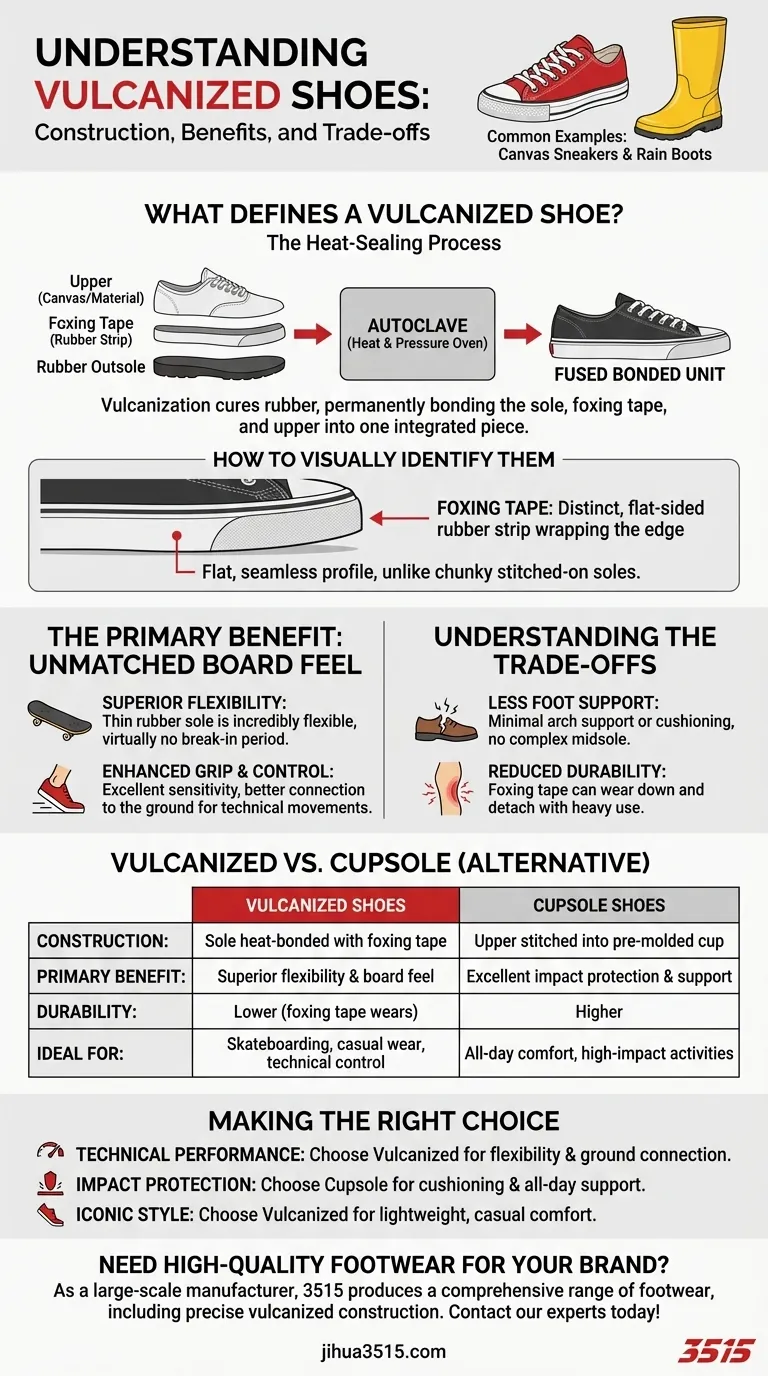
Related Products
- Wholesale Breathable Training Shoes Custom Athletic Footwear Manufacturer
- Wholesale Durable & Breathable Training Shoes for Custom Brands
- Durable Rubber-Soled Utility Shoes for Wholesale & Custom Brand Manufacturing
- Wholesale Durable Camouflage Canvas Shoes with High-Traction Cleated Rubber Sole
- Wholesale Training Shoes with Dial Lacing System Custom OEM Manufacturing
People Also Ask
- What are the benefits of breathable mesh in shoe design? Enhance Comfort and Performance
- What are the characteristics of canvas as a shoe material? A Guide to Lightweight, Breathable Footwear
- What is a Flyknit shoe? The Ultimate Guide to Seamless, Lightweight Performance
- How do non-slip athletic shoes differ from regular athletic shoes? Discover the Grip Technology
- Does more ground contact area mean better support? Unlock the Secrets of Stable Footwear
